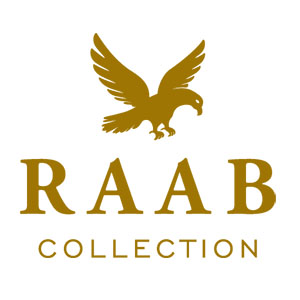signed
30/03/1815
by Henry Clay
30/03/1815. On August 8, 1814, talks began at Ghent, Belgium, that would ultimately result in a treaty ending the War of 1812. The head of the American negotiating team was John Quincy Adams, the U.S.’s most experienced diplomat. The four men who served with him were carefully selected by President Madison to reflect the varieties of political sentiment in the United States. Foremost among them was Henry Clay, Speaker of the House of Representatives, and a noted War Hawk. Albert Gallatin had served as Secretary of the Treasury for both Thomas Jefferson and James Madison. James Bayard was a U.S. Senator belonging to the Federalist Party who had been an opponent of the war, and was one of the 13 Senators to vote against declaring it. However, once the war began he supported the war effort. Jonathan Russell was acting U.S. ambassador to Britain when war was declared. Sent to Ghent as a negotiator, he was also serving as ambassador to Sweden and Norway. He proved instrumental in achieving the final peace terms.William H. Crawford was U.S. ambassador to France during the negotiations, and was responsible for superintending the American consuls in Europe and keeping them informed of developments. More than that, he was an advisor to the President on the happenings on the Continent. As Ambassador to the Court of one of the two major adversaries in the conflicts in Europe, he was also actively involved in the Ghent negotiation process, advising the negotiators and responding to their confidential communiqués. He would later serve as Secretary of War and Secretary of the Treasury under Presidents Madison and Monroe.In late December 1814, the Treaty was signed with the British, and in February 1815 it was ratified by the US Senate. It took time for the news of the ratification to reach Europe, where Henry Clay and John Quincy Adams were tasked with negotiating a commercial treaty with the British in the wake of the peace treaty.Napoleon, who had been banished to Elba in 1814, escaped and marched into Paris on March 20, 1815, for his famed final 100 days on the throne - before his defeat at Waterloo and exile to St. Helena. ClayAutograph letter signed, London, March 30, 1815, to Crawford, full of praise for Napoleon and sagely predicting that the British would take military action against him. “The interruption of the ordinary communication between this country and France has prevented me from hearing from you or any other friend since I left Paris. I wrote you a few days ago stating my arrival here on the 21st inst. and Mr. Beasley assures me that he has transmitted my letter by a safe conveyance. I will therefore presume on its arrival and will not repeat its contents. I have not yet heard of any American vessel arriving since the Favorite. But several British vessels, chiefly from their Blockading Squadrons on our coast, have entered the ports of Plymouth and Portsmouth; one in the short passage of 16 days from New London - nothing is yet transpired of the news if any which she brought.“The Revolution in France is completed, as was predicted by Erving [George Erving was U.S. envoy to Spain] without bloodshed. What a wonderful man the Emperor is! How he mocks all human calculations and arrangements! I am inclined to think that this government, so eager for war at first, pauses as to the course it will adopt. And if the Emperor has offered, as the papers this morning assert, to abide by the Treaty of Paris, it may be yet possible to preserve peace, the declaration at Vienna notwithstanding. That paper, a probably concession to the importunity of Talleyrand, I am inclined to think was intended to prop the Bourbons, rather than to announce a pledge as to the conduct of the Allies, after their downfall.“But I confess I do not see how the Emperor is to keep out of War. His military must be employed, and he must do something to justify the high expectations of national pride and vanity. He must, I should suppose, attempt to retake Belgium, and this country [Britain] has so linked itself with Belgium, that in that event War with it, I apprehend, is inevitable.“I am very anxious to hear from you and from my colleagues. I hope my apprehensions as to poor Bayard have not been realized, and that his health is re-established.“Pray my dear sir if you have anything from America write to me by some private hand, now I suppose the only opportunity. It was a foolish thing on the part of this government to stop the mails. Remember me to Erving and your good secretary.” (Inventory #: 10058)



